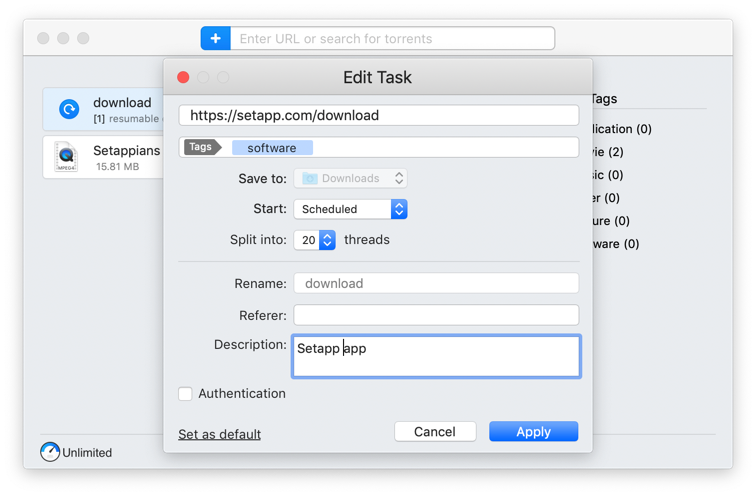Average Upload Download Speed Mac
I have the problem both wireless and connected to the router on a cable. The up- and download speed on my PC is jus fine, so it cannot be the router/modem/ISP. The problem must lie with my mac.
Does anyone have an idea what I could do?
Help is greatly appreciated!
Message was edited by: Chriss25
Speed Test Upload Download
Test your Internet connection bandwidth to locations around the world with this interactive broadband speed test from Ookla. There’s nothing faster than launching a Speedtest straight from your Mac toolbar. Download the free Speedtest macOS app today for the quickest way to check your connectivity. /download-hd-tune-for-mac.html. Get a real-time check of your ISP’s performance and detect trends over time with data on: Download speed; Upload speed; Ping; Jitter; Packet loss; Available in 17. Average upload speed was 9.19 Mbps, an increase of 11.6%. Fixed broadband speeds also increased. Average download speed increased 26.4% to 46.12 Mbps, while average upload speed came in at 22.44.

Macbook Pro, Mac OS X (10.5.4), mac os leopard
Posted on
(First, if yours is an Intel Mac, check that Safari is not running in Rosetta, which is enough to slow it to a crawl.)
Adding DNS codes to your Network Settings, should gives good results in terms of speed-up:
Open System Preferences/Network. Double click on your connection type, or select it in the drop-down menu. Click on TCP/IP and in the box marked 'DNS Servers' enter the following two numbers:
208.67.222.222
208.67.220.220
(An explanation of why that is both safe and a good idea can be read here: http://www.labnol.org/internet/tools/opendsn-what-is-opendns-why-required-2/2587 / )
Whilst in System Preferences/Network you should also turn off 'IPv6' in your preference pane, as otherwise you may not get the full speed benefit (the DNS resolver will default to making SRV queries). If you want to know what IPv6 is:
This is Apple's guidance on iPv6:
http://docs.info.apple.com/article.html?path=Mac/10.5/en/8708.html
Click on Apply Now and close the window.
Restart Safari, and repair permissions.
If that didn't do it, then try this as well:
Empty Safari's cache (from the Safari menu), then close Safari.
Go to Home/Library/Safari and delete the following files:
form values
download.plist
Then go to Home/Library/Preferences and delete
com.apple.Safari.plist
Repair permissions (in Disk Utility).
Start up Safari again, and things should have improved.
BUT upload speeds are excruciatingly slow at 22 kbps. + Transfers to and from local windows file server (via SMB) seem to be fine. + PCs on the same network have no problem uploading at speeds comparable to the download speeds. + an OS 9 machin on the same network has no problem uploading at speeds comparable to the download speeds.
Apr 12, 2009 12:48 AM
What Is Download Speed And Upload Speed
The average internet download speed ranges from 12 to 25 Mbps. This is what most people in the US have. But there are other options: 'Basic' service will go from 3 to 8 Mbps download speed, while. For example, with a slow internet speed like the one shown, doing large iCloud backups is a huge challenge and can take weeks to upload or download. Likewise, using iCloud Photos may not be ideal on this type of internet connection because the speed is too slow to handle a large photo library syncing across devices. The only way to increase the download speed on your Mac is to use a dedicated Internet Download Manager, such as Folx. We recommend Folx because it offers the best service among all the apps available out there and you have the chance to discover its perks during the free trial version.